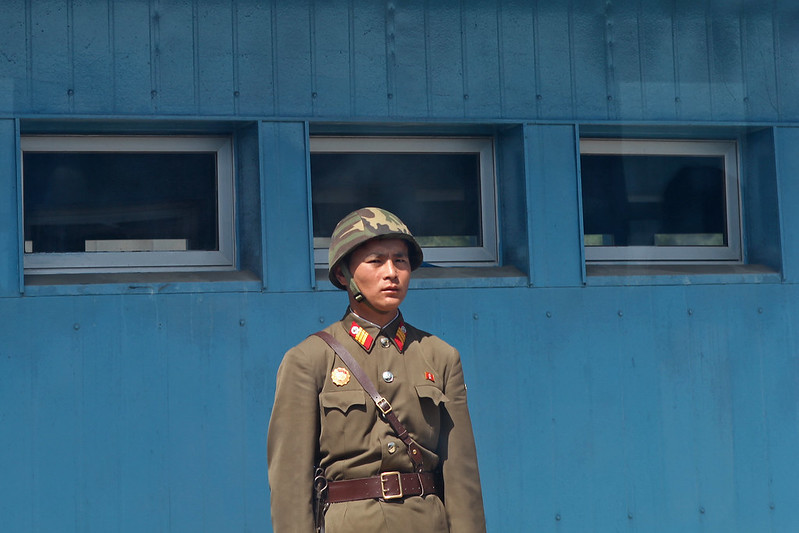NENA TROMP
The Commission of Inquiry (COI) on Human Rights in the Democratic People’s Republic of Korea (North Korea) is one of the surprising UN successes. First of all, because of the expediency with which the inquiry has been conducted. Namely, since the High Commissioner for Human Rights, Navanethem Pillay, called for a fully-fledged international inquiry into serious crimes said to have been taking place in North Korea for decades in January 2013, the three-member commission was established only several months later. In February 2014, the CoI Report was made public. Despite the refusal of the North Korean authorities to cooperate with the CoI, the reports has been very well documented with the substantial testimony and other information was available from the outside North Korea. The CoI findings were presented at the UN Human Rights Council in Geneva on 17 March 2014, followed by an extensive media outreach by its three members. The firm conclusion by the COI that North Korea has been committing crimes against humanity needed further action. There was skepticism on the follow up. What were the chances that the UN Security Council would pick up on conclusions and recommendations and refer the case to be properly investigated by the International Criminal Court (ICC)?
And then suddenly a miracle happened. The United Nations General Assembly committee voted – quite unexpectedly – in November 2014 in favour of a draft resolution referring North Korea to the ICC for crimes against humanity. It also voted for imposition of the “targeted sanctions” for rampant human rights abuses. A North Korean representative reacted by saying that the resolution “provoked confrontation” and “failed to reflect the reality on the ground”.
It was a vote of great significance as 111 states voted in favour of the draft resolution, with 19 votes against and 55 abstentions. Although it was merely a recommendation – given the fact that the General Assembly does not have the power to refer the North Korean regime or its leader Kim Jong Un to the ICC – it was a decision of great significance for a number of reasons. First, it showed the general (negative) disposition of the majority of the international community towards the North Korean regime and, secondly, it showed the UN could act in a swift manner if exposed to the pressure of public opinion and hard facts.
What decision may we expect in the complex and bureaucratic UN decision-making process? It is a tricky stage where the ideal of justice might collide with the political interests. The final decision whether to refer a country to the ICC lies only with the UN Security Council, a 15-member body charged with maintaining international peace and security.
The Council’s five permanent members wield veto power. Three of them – the US, China and Russia – are not even party to the Rome statute, the treaty adopting the ICC. Given their ideological history it is to be expected that China and Russia might not be willing to go along with the General Assembly recommendations and even use their veto right at the Security Council. From the other ten (not permanent) UN Security Council states Cuba might side with North Korea. Some other countries might feel that the measure was politically manipulated while the others might be cautious, as a precedent will be set for other nations to be targeted in the future.
Were Russia or China to decide to use a veto, it will be the end of the effort to refer the alleged crimes to the ICC. According to lawyers, political analysts and commentators this is most likely to happen.
Yet, the process from January 2013 to December 2014 put the human rights situation in North Korea on the map of global politics. And it will stay there as many state and non-state actors will get involved and try to make difference. Some already feel that the immediate goal is and should be, not just to punish those responsible for ordering and committing crimes of mass atrocities – but to find the political mechanisms to stop the commission of these crimes forthwith. The big question is: can it be realised without a regime change? Or might the changes be encouraged and triggered from within the regime? Where would the ICC referral feature in that (unlikely) scenario?
The Hague, 17 December 2014
Nena Tromp, studied Political Science at the University of Zagreb and Russian Studies at the University of Groningen, The Netherlands. She has been working in the Department of European Studies at the University of Amsterdam since 1992. Between 1998 and 2002, she participated in the investigation into events in Srebrenica that was conducted by the Dutch Institute for War Documentation (NIOD) and commissioned by the Dutch Government. From 2000 to 2012, she worked as a Researcher on the Leadership Research Team in the Office of Prosecutor (OTP) at the International Criminal Tribunal for the Former Yugoslavia (ICTY), where she was principle researcher on history and politics in the trial of Slobodan Milošević. Her primary focus was to uncover and clarify the plan undertaken by Serbian leadership and criminality related to its implementation, as charged by the OTP. She also worked on other key cases, most notably that of Radovan Karadžić. Tromp will receive her PhD from the University of Amsterdam’s Centre for War, Holocaust and Genocide Studies in spring 2015. She is the co-founder and Executive Director of the Geoffrey Nice Foundation on Law, History, Politics, and Society in the Context of Mass Atrocities, which supports and provides cross-national educational opportunities for students, researchers, and academics in the field of International Criminal Justice. Nena Tromp is member of the Editorial Board UN Forum.
